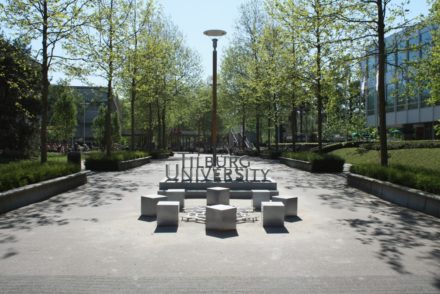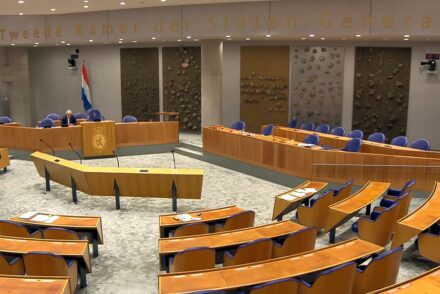New light on conviction Deventer murder case: ‘Louwes is innocent’
‘‘The handyman’ and ‘the accountant’ both didn’t do it,’ emeritus professor Ton Derksen explains in his new book on the Deventer murder case. According to him, character assassination was committed, and the convicted Ernest Louwes is innocent.

No murder case grips the Netherlands like the Deventer murder case (in Dutch). In 1998, the wealthy widow Wittenberg was strangled and stabbed several times with a knife. The judge convicted ’the accountant’ Ernest Louwes. But pollster Maurice de Hond found a perpetrator in someone else. According to him, not ’the accountant’ Ernest Louwes but ’the handyman’ Michael de Jong had killed the widow.
Unjustified, argue podcast maker Annegriet Wietsma (VPRO podcast De Deventer Mediazaak (in Dutch)) and journalist Bas Haan (De Deventer Murder Case; the plot unraveled). Both suggest that Ernest Louwes must really be the culprit.
But according to Ton Derksen, emeritus professor of theory of knowledge and epistemology at Tilburg University, both sides are wrong. In his new book De Deventer karaktermoord (in Dutch), Derksen argues that ‘neither the handyman nor Louwes is the killer.’
The handyman or the accountant?
According to Derksen, the question of guilt is unjustified: ‘Maurice de Hond made everyone wonder who did it. In De Hond’s eyes there were only two possibilities: either the handyman was the murderer, or the accountant had done it. Based on far too little evidence, De Hond believed that the handyman was the culprit.’
Derksen explains that Haan and Wietsma incorrectly adopted this dichotomy from De Hond: ‘Unlike De Hond, Haan and Wietsma defended the handyman. Because, according to them, the handyman was not guilty, Louwes had to be the murderer. A wrong interpretation.’
Louwes is not the culprit
In his book, Derksen describes six different ‘conclusive’ arguments that exonerate Louwes: ‘Louwes’s DNA on Ms. Wittenberg’s blouse—which is generally considered definitive proof of his guilt—is, on closer analysis, actually proof of his innocence. It is in a location appropriate to his morning visit. But not with the violence of that same evening that resulted in the widow’s death.’
According to Derksen, this also applies to the telephone conversation that took place just before the murder. Louwes argued that he called Wittenberg from the A28 in Harderwijk. Because he was on the road, he could not have killed her. But because Louwes’ phone made contact with a telephone pole in Deventer, the court rejected his alibi.
‘According to the court, this was ‘proof’ that Louwes was in Deventer just before the murder. But my new calculations show that—if Louwes drove from Utrecht to Deventer to commit the murder—this pole could not catch the phone call at all. This phone call, deemed ‘fatal’ to Louwes, exonerates him.’
Review request
Lawyer couple Geert-Jan and Carry Knoops, who are assisting the convicted Louwes, filed a request to reopen the Deventer murder case late last year. According to Geert-Jan Knoops (in Dutch), an additional investigation by forensic investigators ‘sheds new light on the conviction.’
‘Knoops sent—on the basis of conclusive arguments that I describe in my new book De Deventer karaktermoord—a supplement to the review request to the Supreme Court. Louwes, contrary to popular belief, cannot be the murderer. Sadly, he still does not have a normal job because he does not admit that he killed Ms. Wittenberg,’ Derksen explains.
Translated by Language Center, Riet Bettonviel







